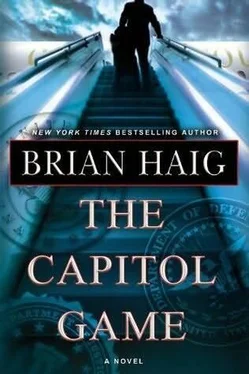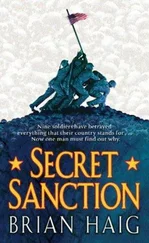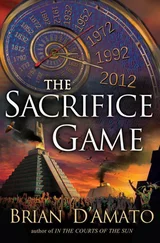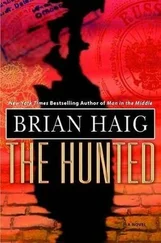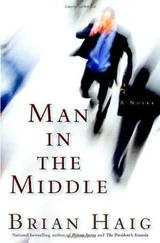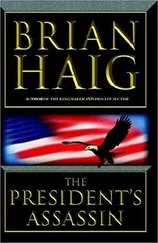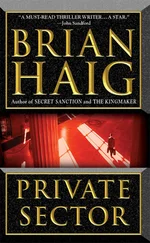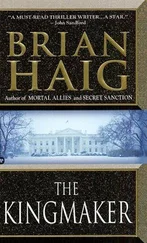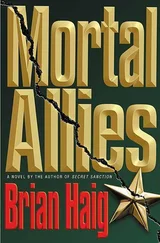Jack got up and worked his way to the side table laden with food and snacks. He picked up a plate and loaded it with cucumber sandwiches, a few sweet pickles, some chips. “Perry is surviving a day at a time. He borrowed heavily for the expansion and to build his stockpile. He emptied his equity, leveraged himself to the hilt. I understand he owes 150 mil on five-year notes at seven percent. Do the math.”
Walters, only too happy to express the obvious, said, “Any setback at this point will be disastrous.”
“So do you have a plan to squeeze him?” Bellweather quickly asked. He was sure he had a whopper.
Jack selected a pickle and bit down hard. “You’re going to do it.”
“Us?”
“That’s right, and here’s a happy coincidence I think you’ll savor. Perry’s largest account is a munitions company located in Huntsville, Alabama. Globalbang. Perhaps you’ve heard of it.”
Big smiles instantly erupted on the other side of the table. Globalbang, they all knew, happened to be one of the many subsidiaries of the Capitol Group. It produced, among other things, Air Force bombs and Navy missiles and an assortment of other things that go boom in the night. No wonder Jack had set his sights on CG. They spent a brief moment admiring how cleverly Jack had walked them into this, then another moment, leaning forward to hear the details.
After nearly inhaling a sandwich, Jack continued. “Last year, Perry sold seventy million in chemical explosives to Globalbang. You can find out more easily than I, but assume his contracts this year are roughly equivalent.” He paused and let the moment build. “Imagine now if those contracts are canceled.”
“He would sue us,” Jackson snarled, still smarting from his earlier humiliation. It was time to even the score, and he knew how to do it. He worked up a condescending scowl and said, “And you know what, Wiley? He’ll have an excellent case. In fact, he’ll cream us.”
“So what?”
“That’s a stupid question.”
“Let him hire the meanest legal shark he can find. Sue to his heart’s content. It would take at least a year or two for resolution. Perry hasn’t got a prayer of surviving two months, much less two years.”
The light finally came on and Jackson blurted, “And if we take him over-”
“Then why would we sue ourselves?”
Bellweather began gliding around the table, topping off their champagne flutes. They had already toasted the partnership: now it was time to toast a victory that was all but in their laps. They could see it, smell it, taste it. After a moment, he lifted his flute and, smiling broadly, said, “Here’s to Jack and his holy grail.”
“Hear, hear,” they all chanted.
Tuesday night meant chicken barbecue at the plant, a weekly event that nearly all of Perry Arvan’s employees and wives made a point to attend. It was a tradition, a ritual. Something Perry had instituted decades before, back when Arvan Chemicals was a desperate start-up with five employees struggling to build a long-shot dream.
In the early years, Marge, Perry’s lovely young wife, kept the books and performed the secretarial chores. Then the kids came and she stepped back and encouraged him to hire a professional bookkeeper. His sons and daughter worked at the plant almost from infancy. Now his grandchildren were dropping by after school, doing odd jobs and learning the trade in the bottom-up route Perry insisted they follow. It was a family place, cradle to grave, always had been, and he fought hard to keep it that way. Nearly three-quarters of his employees were relatives of each other, in one way or another. Sons and daughters hauled vats of chemicals right beside their fathers and mothers. “Uncle This” and “Auntie That” were frequently bellowed about the plant. These days, increasingly, grandchildren of employees he’d known for more than forty years were on the payroll.
As always, Perry stood by the door, warmly greeting everybody who entered. He knew them all by name. He knew their children, where they lived, had attended many of their weddings and stood somberly at the funerals of their kin. They came to him with their problems and tragedies, and he knew those, too.
The world around him had changed, not much for the better, Perry thought. After attending Princeton University for his undergraduate, his master’s, and his doctorate in thermochemistry, he had made the easy decision to plant his dream a few miles down the road, in Trenton.
Trenton was a roaring factory town back then, home to countless small, bustling firms, like his, that fed the fabulous appetites of larger companies, from the great automobile manufacturers in Detroit to the vast array of large chemical firms sprinkled around New Jersey. “Trenton makes, the world takes,” boasted the proud lights on the big bridge that spanned the sluggish, muddy Delaware River to Pennsylvania.
A sad joke these days. A glittering homage to irony. Trenton had long since been eclipsed as a manufacturing center, then entered a period of steep decline. A city that once bragged of almost as many diemakers as Detroit could now only boast of having almost as many murderers, drive-by killers, and muggers. It seemed to Perry that the town had become little more than a swamp of abandoned warehouses, blighted blocks, and unhappy, desolate, drug-addled people.
Perry had watched it all with sad awareness; the decay came fast and cruel. Once-bountiful parks became drugstores where the hopeless bought from the desperate, snorting white stuff up their nostrils or pushing dirty needles in their veins. The only businesses that expanded were bars, racing to keep up with the swift upsurge in drunks. The abrupt eruption of crime and gangs simply overwhelmed the police force. Kids were shot down in school. There was a flood of muggings and rapes and stickups. The local hospitals overflowed with addicts and overdoses and shooting victims who, too often, were children.
He mourned the passing of a once great town. Perry had been sorely tempted to pack up and move a thousand times. But he stayed. Trenton was his home. Arvan Chemicals was one of the last of the breed and proud of it, a place of employment from birth to death, where hard work was rewarded, where families stayed and struggled together.
“Evening, Perry,” Marcus Washington said, pumping hard with his left hand. Perry smiled back and offered his customary “Welcome to the big bake.” One of the many old-timers, Marcus had joined Arvan back in 1968 after an ill-fated tour in Vietnam, where he lost his right eye and the lower part of his right arm. He was desperate for work, horribly scarred, and despite his mangled condition and the manual nature of factory work, Perry took him on. Marcus had never once given him cause to regret that decision.
“Marcus, Angela. Chicken’s still on the grill, but you know where the drinks are.”
“That’s exactly what I need, a drink,” Angela grunted as she stoutly shoved her way past. “Maybe two or three.”
A drink? Oh no, that’s the last thing you need, Perry was tempted to shout, but pursed his lips and smiled at her anyway. It wouldn’t help, wouldn’t make any difference at all. She and Marcus had met in the plant. He worked on the floor, Angela clerked in shipping. They actually held their wedding in the factory, a big to-do with the whole place bedecked with flowers and shiny gold crepe, the works. Back then Angela was a pretty girl, petite, flirty, a smile-a-minute type. After three dispiriting miscarriages, they finally produced a little boy, a tousle-headed, freckly little redhead named Danny, who was their pride and joy.
Poor Danny lived to the ripe age of eight before he fell ill with a painful blood disease nobody could identify or treat, much less cure. Perry and the workers scraped together what money they could afford to help defray the increasingly expensive treatments. In the end, though, young Danny passed away, screaming in agony. Marcus swallowed the pain and soldiered on. He’d lost pieces of himself in Vietnam; he’d learned to endure loss. But Angela turned moody, sour, and unhappy, ballooned in weight, and adopted booze to assuage her grief. She was so big now she waddled. She took to wearing spandex tights and was quite a sight.
Читать дальше
